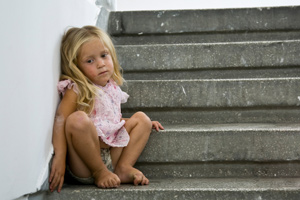A CHILD protection expert says many children living in out-of-home care do not receive preliminary health assessments, but that a new framework for conducting clinical assessments is a significant step in the right direction.
Writing in the latest MJA, Professor Graham Vimpani, senior clinical advisor for child protection and wellbeing at the NSW Ministry of Health, and colleagues said that considerable advances were needed to meet the national health standards introduced, as part of the new National Standards for out-of-home care in July last year. (1)
“Current practice will need to change substantially in most Australian states and territories if the new standards are to be met within the next 3 years”, the authors wrote.
The new standards specify that that all children have their physical, developmental, psychosocial and mental health needs assessed and attended to in a timely way. (2)
All children entering care are to have a preliminary health check, followed by required specialist services and a comprehensive health assessment.
However, the MJA authors said recent audits showed less than 25% of children entering care received comprehensive assessments or had acceptable management plans in place.
Professor Vimpani told MJA InSight that recent reforms meant the proportion of children receiving health assessments had probably increased but further improvements were still needed.
The MJA authors said it could be challenging for health service providers to identify which children required more complex, multidisciplinary care, and questioned which triage tools were the most appropriate. Confusion also existed over which organisations should be responsible for case management.
The transfer of health information between health professionals and child welfare agencies was another issue that could be “highly problematic”, they wrote.
But a new framework will address some of these problems. Professor Vimpani told MJA InSight he welcomed the framework for conducting clinical assessments of children living in out-of-home care, released recently by the federal government.
The National Clinical Assessment Framework for Children and Young People in Out-of-home Care, posted on the Department of Health and Ageing website late last month despite approval from the Australian Health Ministers Advisory Council in March last year, aims to improve the consistency of health assessments of children in out-of-home care. It recommends particular assessment tools to assist clinicians, such as the ages and stages questionnaire and the strengths and difficulties questionnaire. (3)
“It picks up a number of concerns that we have expressed … such as having some form of standardised screening instrument”, Professor Vimpani told MJA InSight.
He said the issues now would be implementing the framework and monitoring its implementation.
“It’s now going to require a lot of work by state governments to implement it and to make specific recommendations to clinicians who are involved in child health assessments”, he said.
A key issue would be ensuring that the framework was consistently implemented, particularly in NSW where responsibility for managing children in out-of-home care will soon transfer from the state government to various non-government organisations.
Last week, it was reported that the NSW Department of Family and Community Services had cut payments to foster carers of 16- and 17-year-olds by $214 a fortnight. (4)
– Sophie McNamara
1. MJA 2012; 196: 91-92
2. National standards for out-of-home care. Department of Families, Housing, Community Services and Indigenous Affairs
3. National Clinical Assessment Framework For Children and Young People in Out-of-Home Care. Department of Health and Ageing
4. Sydney Morning Herald 2012; 2 February: Take back our children, say angry foster parents
Posted 6 February 2012

 more_vert
more_vert